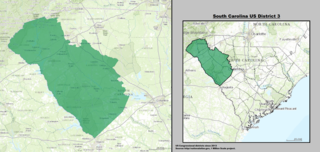Biography
James Sproull Cothran was born in Abbeville County, South Carolina on August 8, 1830. He attended the country schools and graduated from the University of Georgia in Athens in 1852. He was an attorney in private practice. He served with the Confederate Army. He was solicitor of the eighth judicial circuit of South Carolina in 1876 and 1880 and judge of the eighth judicial circuit of South Carolina from 1881 to 1886. He was elected as a Democrat to the Fiftieth and to the succeeding Congress (March 4, 1887 – March 3, 1891). Cothran was not a candidate for renomination to the Fifty-second Congress in 1890. He died on December 5, 1897, in New York, New York. He was interred in Upper Long Cane Cemetery, Abbeville, South Carolina.

Abbeville County is a county located in the U.S. state of South Carolina. As of the 2010 census, its population was 25,417. Its county seat is Abbeville. It is the first county in the United States alphabetically.
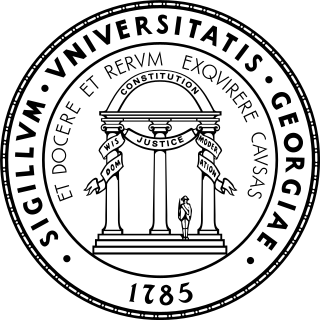
The University of Georgia, also referred to as UGA or simply Georgia, is a public flagship research university with its main campus in Athens, Georgia. Founded in 1785, it is one of the oldest public universities in the United States.

Athens, officially Athens–Clarke County, is a consolidated city–county and college town in the U.S. state of Georgia. Athens lies about 70 mi (113 km) northeast of downtown Atlanta, a Global City and the cultural and economic center of the Atlanta metropolitan area, being in the top ten of the largest metropolitan areas in the nation. It is a component of the larger Atlanta–Athens–Clarke County–Sandy Springs Combined Statistical Area, a trading area. The University of Georgia, the state's flagship public university and a R1 research institution, is in the city and contributed to its initial growth. In 1991, after a vote the preceding year, the original City of Athens abandoned its charter to form a unified government with Clarke County, referred to jointly as Athens–Clarke County. As of 2017, the U.S. Census Bureau's estimated population of the consolidated city-county was 125,691; the entire county including Winterville and Bogart had a population of 127,064. Athens is the sixth-largest city in Georgia, and the principal city of the Athens metropolitan area, which had a 2017 estimated population of 209,271, according to the U.S. Census Bureau. The city is dominated by a pervasive student culture and music scene centered on downtown Athens, next to the University of Georgia's North Campus. Major music acts associated with Athens include numerous alternative rock bands such as R.E.M., the B-52's, Widespread Panic, and Neutral Milk Hotel. The city is also known as a recording site for such groups as the Atlanta-based Indigo Girls.
This page is based on this
Wikipedia article Text is available under the
CC BY-SA 4.0 license; additional terms may apply.
Images, videos and audio are available under their respective licenses.

Jeter Connelly Pritchard was a United States Circuit Judge of the United States Court of Appeals for the Fourth Circuit and of the United States Circuit Courts for the Fourth Circuit and previously was an Associate Justice of the Supreme Court of the District of Columbia.

George Washington McCrary was a four-term Republican Congressman from Iowa's 1st congressional district, a United States Secretary of War in the cabinet of President Rutherford B. Hayes, and a federal circuit judge.

Frank Boyd Gary was a United States Senator from South Carolina. Born in Cokesbury, South Carolina, he attended the Cokesbury Conference School and Union College. He studied law, was admitted to the bar and commenced practice in Abbeville, South Carolina in 1881. From 1890 to 1900 he was a member of the South Carolina House of Representatives, serving as speaker from 1895 to 1900. He was a delegate to the State constitutional convention in 1895 and was a member of the State house of representatives in 1906.
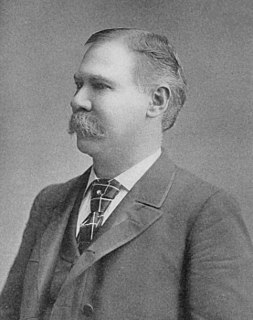
Rice Alexander Pierce was an American politician and a member of the United States House of Representatives for the 9th congressional district of Tennessee.

James Robert Mann was a soldier, lawyer and a United States Representative from South Carolina.
Wyatt Aiken was elected to the U.S. House of Representatives for South Carolina's 3rd congressional district. He served for six terms from 1903 to 1917.
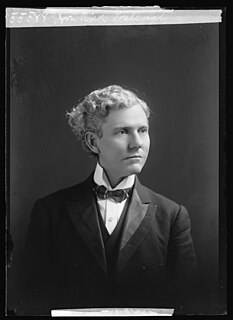
Robert Minor Wallace was a U.S. Representative from Arkansas.
Hiram Kinsman Evans served part of one term as a Republican U.S. Representative from Iowa's 8th congressional district.
Nicholas Ellsworth Worthington was a U.S. Representative from Illinois.

Thomas Foster Tipton was a U.S. Representative from Illinois.
Francis Marion Griffith was a U.S. Representative from Indiana.

George William Dargan was a U.S. Representative from South Carolina, great-grandson of Lemuel Benton.
James Augustus Black was a manufacturer, cotton broker, and U.S. Representative from South Carolina.

James Henry Davidson was a U.S. Representative from Wisconsin.
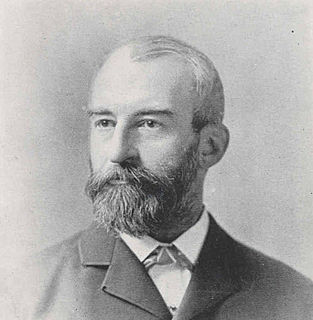
William Hayne Perry was a United States Representative from South Carolina. He was born in Greenville, South Carolina, where he attended Greenville Academy, and graduated from Furman University at Greenville in 1857. He also attended South Carolina College at Columbia, South Carolina and graduated from Harvard University in 1859. Later, he studied law in Greenville and was admitted to the bar in 1861 and commenced practice in Greenville.

William Elliott was an attorney and politician, serving U.S. Representative from South Carolina.
James Norton was a U.S. Representative from South Carolina.

The 1890 South Carolina United States House of Representatives elections were held on November 4, 1890 to select seven Representatives for two-year terms from the state of South Carolina. Two Democratic incumbents were re-elected, one Republican incumbent was defeated, and the four open seats were retained by the Democrats. The composition of the state delegation after the election was solely Democratic.

Hamilton Glover Ewart was a United States Representative from North Carolina and a United States District Judge of the United States District Court for the Western District of North Carolina.

Upper Long Cane Cemetery is a historic cemetery in Abbeville, South Carolina, founded c, 1760. Over 2,500 marked graves and numerous unmarked graves cover the cemetery's approximately 25 acres. It was listed on the National Register of Historic Places in 2010.
